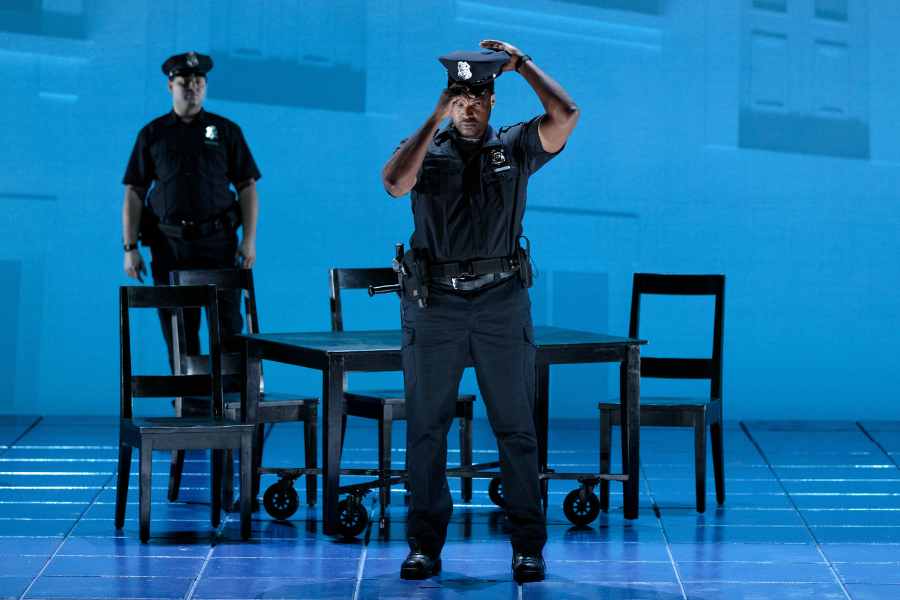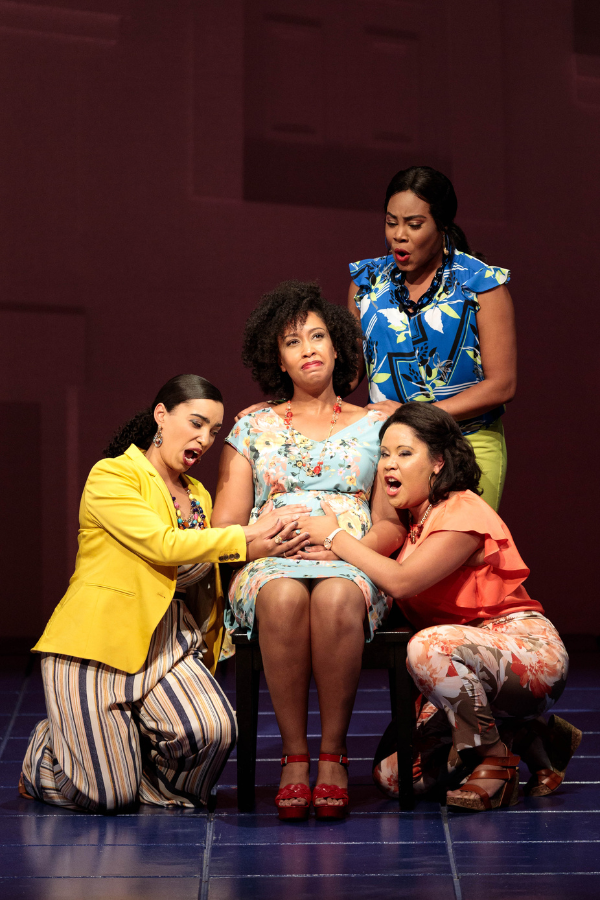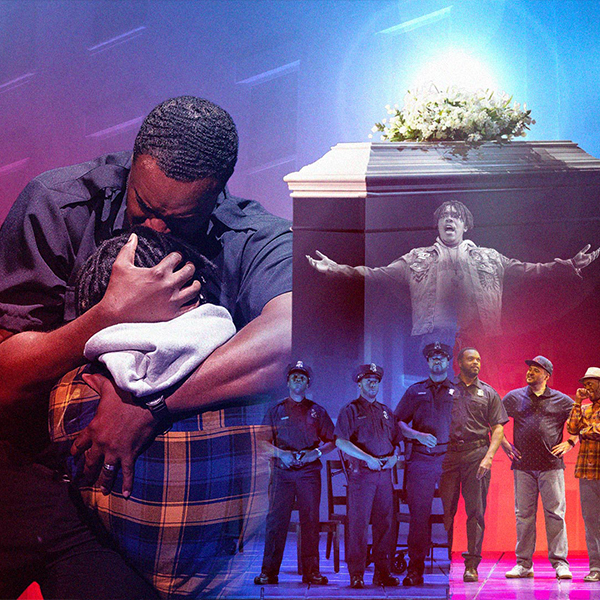November 05, 2024
Director's note: Blue
By Tazewell Thompson
In the fall of 2015, I received an email from Francesca Zambello, the director of The Glimmerglass Festival. “I’m interested in commissioning an opera about race in America, about where we are now as a people dealing with race,” she wrote. “I have a composer set, and I’m looking for a librettist. What are your thoughts on the following writers?”
They were all names known to me, some quite famous. Some had written operas before. “What about me?” I replied.
That summer at Glimmerglass, Eric Owens had been singing in Verdi’s Macbeth, and I was directing the American premiere of Vivaldi’s Catone in Utica. Eric and I, two Black men, were outraged by the prominent cases of unarmed Black boys and men being shot by white police officers. We, of course, had our own stories of racial profiling that we shared as we tried and failed to understand what was happening to our Black brothers, and why.
I sent Francesca two scenes set in Harlem, where I was born and now live: A young married Black couple expecting their first child, a boy, and fearing the challenges and obstacles he will face; and a scene of the mother-to-be and her girlfriends.
Francesca told me to send the samples to Jeanine Tesori, who would be the opera’s composer. Jeanine and I met over avocado toast on Upper Broadway. It was a match.
As I wrote, I looked to my favorite essayist and novelist, James Baldwin, and his The Fire Next Time; the work of Maya Angelou; and, from my teenage years, Claude Brown’s Manchild in the Promised Land. I consulted with friends, Black and white: How do you prepare a son for what awaits him? Do you have “the talk” with him, about how to survive and thrive from day to day? All the Black parents said yes. The white ones said it had never even entered their thoughts.
Six months later I had a first draft, in which a Black family and their community are convulsed when an unarmed teenager is killed by a police officer. The principal characters were the father, a jazz saxophone player; the mother, a restaurant owner; and the son, a student activist interested in art and poetry. A chorus of 30 young Black men represented other murdered boys, attempting through music and dance to make sense of the world they had left.
As Jeanine and I met and she began to hear musical themes in my text, and with Francesca’s tough notes, things evolved. I learned how to edit rambling sentences down to select bites that would allow the music to enter; how counterpoint is used, and the dramatic musical effect of repeating lines and using active verbs; how to write duets, trios, arias.
At one meeting, Francesca and Jeanine suggested I get rid of the boys’ chorus, and rethink the idea of the father as a struggling jazz musician. “What if he’s a cop?” Jeanine said.
“Absolutely not,” I answered. I did not want to write about a police officer.
But despite myself, I soon recognized the irony, the tension, the glittering possibilities of personal conflict and heartache for a father whose son is murdered by a fellow officer. I set about interviewing Black police officers.
I consulted with a Harlem police officer whose relationship with his teenage son was a disaster, the son appalled that his dad worked for “the man” — the enemy. That conflict is in the opera. For this officer, life insurance and dental coverage for his family were a major part of his decision to join the force. That’s in the opera, too.

The Father, putting on his "blues."
During the pandemic, it was hard to think about Blue, or much of anything, while in my devastated community in Harlem. It was difficult not to feel utterly defeated — though not difficult at all for me to see my face superimposed over George Floyd’s. I was angry and frightened, living in an increasingly terrifying, divisive country — where a white police officer, in broad daylight, in uniform, snuffed out the life of an unarmed, handcuffed Black man.
At first, the opera was referred to in shorthand as “Race Opera.” I began to attach new titles to each draft: “No Name Necessary,” “The Hunted,” “Targets,” “Black Boy,” — even “Say My Name.”
Police officers I spoke to referred to their uniform as “blues”: “When I’m in my blues.” As the opera begins, the audience sees the central character, The Father, changing from his civilian clothes into his police blues. I kept cycling through titles: “Black Blue,” “Black In Blue,” “Black Is Blue.” But it seemed better to be more ambiguous, to refer equally to a mood, a uniform, a kind of day, a kind of music. I wrote to Jeanine, and we decided we should call it “Blue.”

The Mother and her Girlfriends share a moment of joy (and worry), in The Glimmerglass Festival production of Blue.
When the final curtain fell on opening night, there was a long silence, followed by gasps, audible weeping, and then, finally, applause. Blue has been referred to as a “protest opera” and “the opera about police violence.” I suppose both are true. But I did not set out with that goal. I wrote it from an obsessive need and sense of responsibility to tell an intimate story behind the numbing numbers of boys and men who are killed.
But here we are now: art imitating life, life imitating art. Unfortunately, the themes in Blue have no expiration date. I add my voice to those of the characters singing in the opera, and to those of the real families suffering great losses. Our eyes will never be free of tears.

